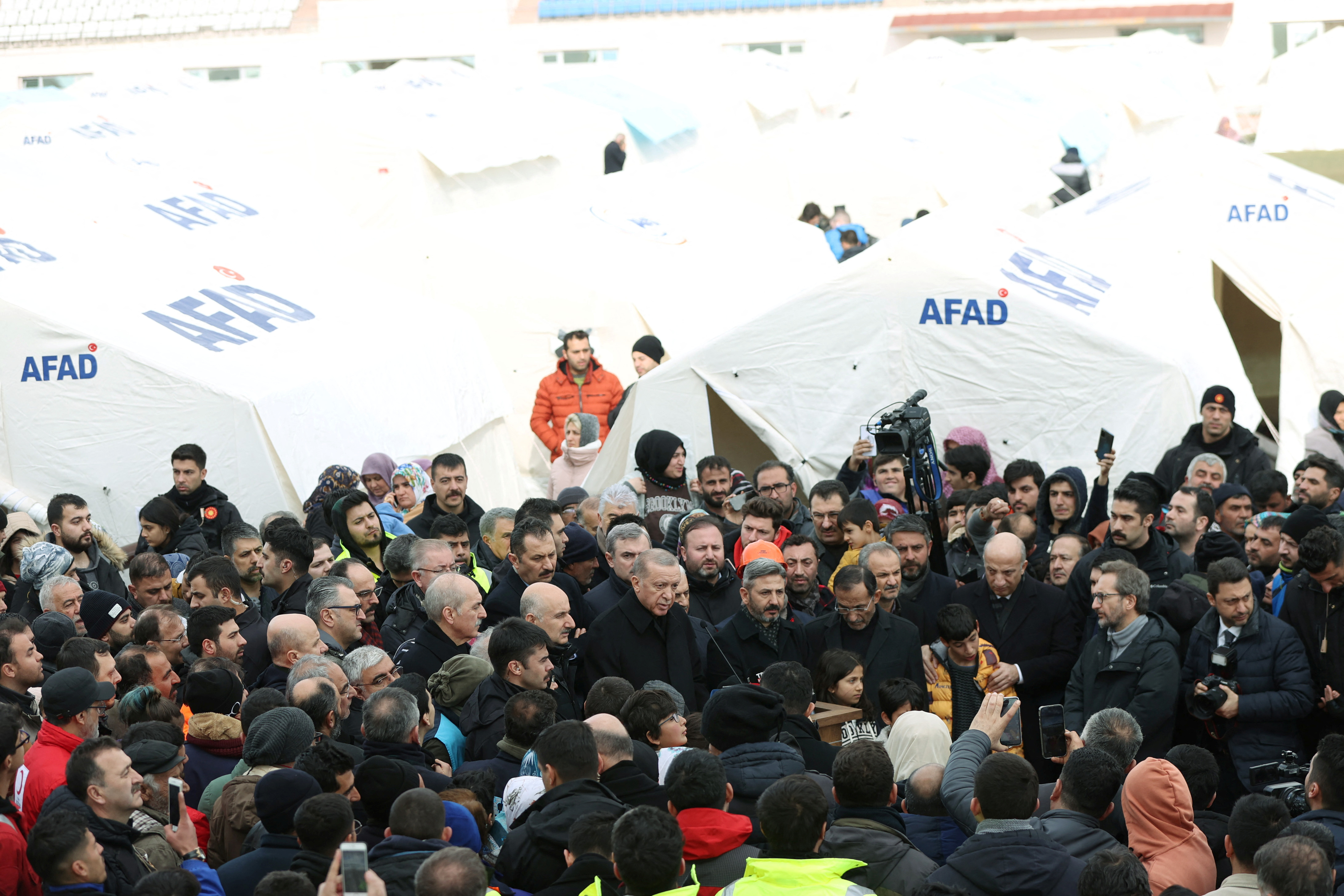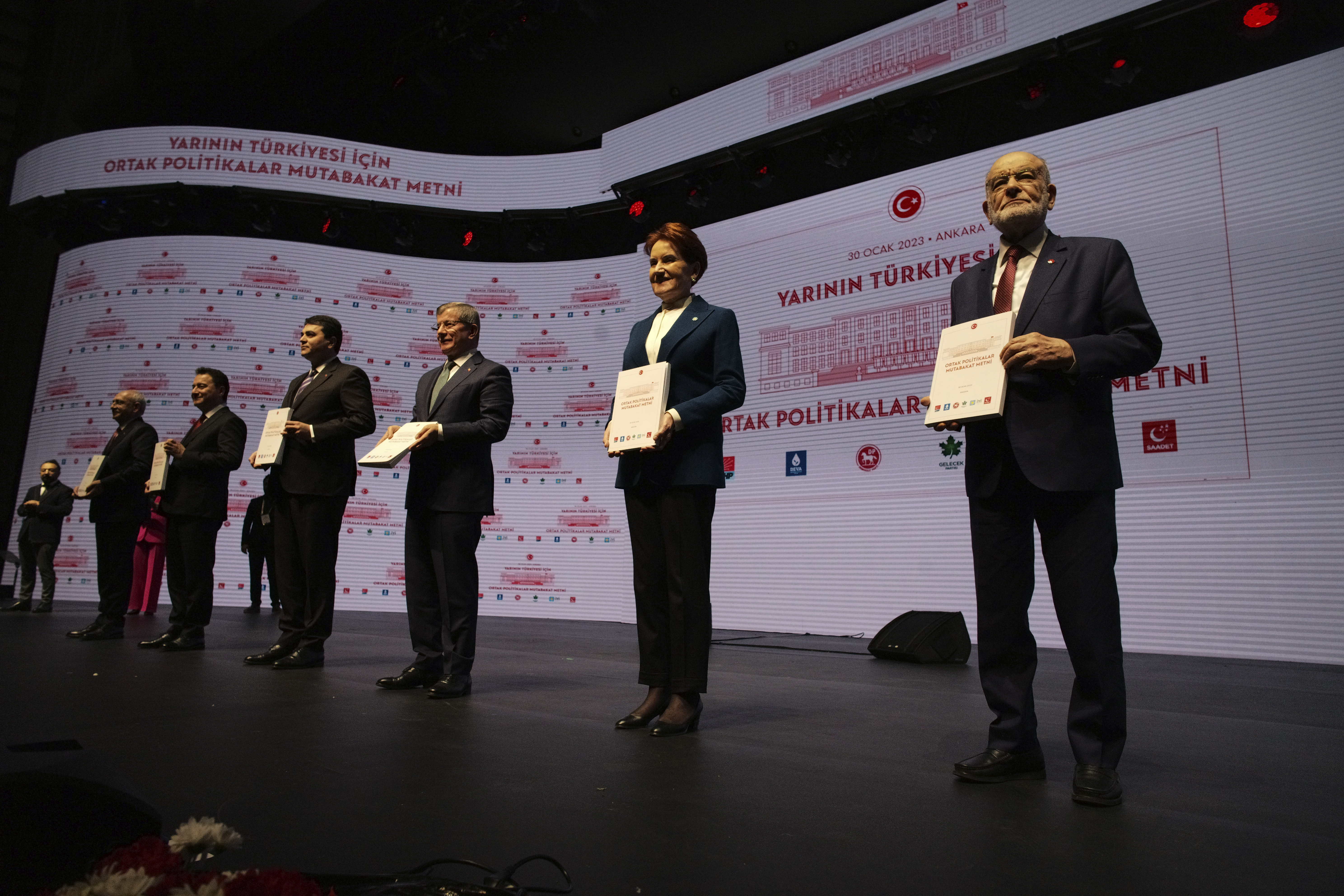
It has been two weeks since a devastating earthquake measuring 7.8 on the Richter scale hit southern Turkey and northwestern Syria. The total death toll now exceeds 46,000 – more than 40,000 in Turkey. Some cities and towns were destroyed and at least two million people lost their homes, prompting the government to set up a makeshift network of tents and makeshift container homes. On Saturday, Turkey announced the cessation of rescue operations in all the most affected provinces, except for two, Antakya and Kahramanmaras.
As days passed, the shock of the disaster turned to anger and disappointment as Turkish citizens accused the government of not taking into account poor building standards, according to the Guardian and Nimo Ömer’s morning update. The belated and disorganized response of emergency services has not helped the situation, leaving President Recep Tayyip Erdogan in an increasingly precarious position as the country approaches the next general election.
The Guardian spoke to Dr. Karabekir Akoyunlu, a British expert on Turkish politics and lecturer at SOAS University London, about how the quake affected Erdogan’s chances of winning a second term.
Erdogan’s position before the earthquake

In the past two years, things have not gone well politically for Erdogan. “Despite the fact that he controls the judiciary, the media and the executive branch, the opposition has been able to form alliances that are quite effective at key moments that have caused him political damage,” says Akoyunlu. “For example, in the 2019 local elections, they managed to wrest the municipalities of Istanbul and Ankara from the hands of the ruling party after 24 years, which was a huge defeat for the AKP.”
Erdogan’s fall in popularity is largely due to the weakening of the Turkish economy: the lira has been collapsing for many years, recently hitting a record low against the dollar. And while inflation has eased over the past two months, the average Turkish citizen is unlikely to feel immediate relief as the country consistently sees one of the highest inflation rates in Europe, hitting a 24-year high of 85.5% in October. .
To combat the ominous polls, Erdogan has begun announcing “the latest populist measures,” Akoyunlu says, which he may not be able to implement. In October, he unveiled what he called “the largest social housing project in the history of the Republic of Turkey”, promising to build 500,000 new homes. “He started to pull this policy out of the bag, although it is obvious that it will cost Turkey’s already empty state treasury dearly,” says Akoyunlu.
What do the citizens think now?
As buildings that were supposed to withstand the quake collapsed, the government faced harsh criticism for a lack of oversight of construction companies that could flout safety regulations for the sake of speed and cost. “None of them were hidden, in the past they were covered by civil society groups, activists and political coalitions, but they were often ignored or, in some cases, imprisoned for their activism,” says Akoyunlu. Now that a number of Turkish cities have been reduced to rubble, attention has returned to what many call “systemic corruption.”
Although public opinion will change as the country begins to recover, and Erdogan is likely to take all the credit for trying to get Turkey back on its feet, the government will not be able to shake off this crisis, as has often happened in the past. “From this point of view, less than two weeks after the disaster, I think that the government will not remain unscathed in terms of public opinion. I believe this will lead to a big loss of public support,” says Akoyunlu.
Elections

Erdogan has made it clear that he does not want to relinquish control and will do whatever it takes to stay in power, and this may not always be within the democratic process. Currently, official plans are for elections to be held no later than May or June, and if that happens, Erdogan’s prospects do not look bright. Perhaps that is why he is promoting unconstitutional moves to delay elections, saying that Turkey cannot hold elections under such conditions.
“We have about four months until June, and the elections in this country were organized normally under very unfavorable circumstances, so this is a clear attempt to avoid responsibility,” says Akoyunlu.
As the centenary of the Republic of Turkey approaches, the upcoming elections are a critical moment for the country. Another five years of Erdogan’s rule would mean a further slide into authoritarianism and favoritism. “This election will determine if there is a last chance to save Turkish democracy.”
Akoyunlu also notes that it is important to position Turkey in the global economic system. “Many international organizations have praised the Turkish economy’s drive for growth, and the construction sector has been at the center of Turkey’s economic boom.” Akoyunlu adds that “Turkey is a special case of what happens when neoliberalism and the erosion of democracy converge.”
The opposition, a six-party coalition, is in an uphill struggle for power and has yet to announce its presidential candidate. If he wins, state institutions could easily be left staffed with Erdoğan’s supporters, making it difficult for him to govern. Or they may inherit empty government departments that simply don’t function. However, Akoyunlu tells the Guardian it’s not so much about “how perfect things can be, but about taking a step to prevent the worst.”
Erdogan’s government came to power two decades ago with a promise to clean up Turkey after a series of corruption scandals, financial crises and a devastating earthquake. “I think it’s a very tragic picture,” Akoyunlu adds. “It looks like Turkey has come full circle and in some ways, in terms of democracy, has taken a step back.”
Source: Guardian
Source: Kathimerini
Anna White is a journalist at 247 News Reel, where she writes on world news and current events. She is known for her insightful analysis and compelling storytelling. Anna’s articles have been widely read and shared, earning her a reputation as a talented and respected journalist. She delivers in-depth and accurate understanding of the world’s most pressing issues.